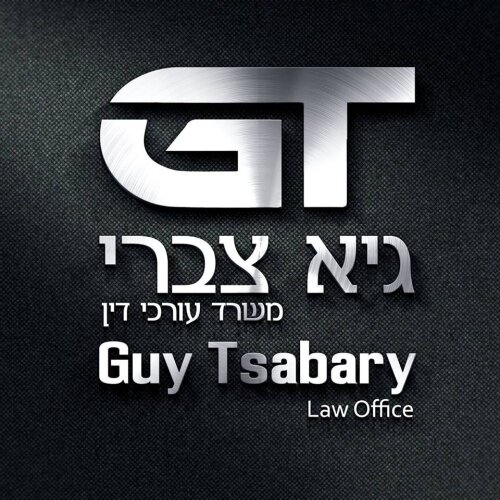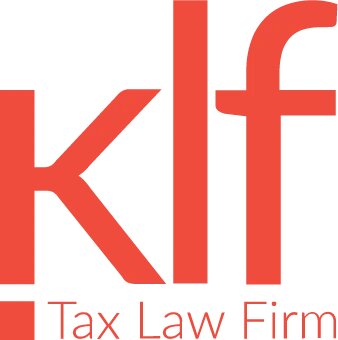Best Nonprofit & Charitable Organizations Lawyers in Jerusalem
Share your needs with us, get contacted by law firms.
Free. Takes 2 min.
List of the best lawyers in Jerusalem, Israel
About Nonprofit & Charitable Organizations Law in Jerusalem, Israel
Nonprofit and charitable organizations in Jerusalem, Israel, play a crucial role in society, fostering community, cultural, and social welfare activities. These organizations operate under a legal framework that provides guidelines on how they can be established, managed, and overseen to ensure transparency and accountability. The primary legislation that governs them is the Law of Associations (known as the Amutot Law), alongside other relevant laws and regulations tailored to various types of entities, including public benefit companies and charitable trusts.
Why You May Need a Lawyer
Engaging a lawyer can be beneficial at multiple stages of managing a nonprofit or charitable organization. Here are some common situations where legal assistance may be necessary:
- Formation and Registration: Ensuring compliance with registration processes and legal structuring from the onset.
- Compliance and Governance: Advising on adherence to the regulatory framework and governance practices.
- Contracts and Agreements: Drafting, reviewing, and negotiating service contracts, employment agreements, and partnership terms.
- Tax and Audits: Navigating tax exemptions, filings, and responding to governmental audits.
- Dispute Resolution: Handling disputes within the organization or with external parties.
- Fundraising and Donations: Ensuring lawful solicitation of funds and proper documentation of donations and grants.
Local Laws Overview
The legal environment for nonprofit and charitable organizations in Jerusalem is shaped by several key components:
- The Law of Associations: This is the primary legislation that outlines the formation, operation, and dissolution of nonprofit entities.
- Taxation Laws: Nonprofits may qualify for tax exemptions, but they must comply with specific requirements outlined by the Israeli Tax Authority.
- Charitable Trusts Law: Governs entities operating as charitable trusts focused on public welfare and philanthropy.
- Licensing and Reporting Obligations: Nonprofits are required to submit annual reports, financial statements, and maintain transparency with the Registrar of Associations.
- Employment Law: Includes regulations related to hiring, managing, and terminating employees within such organizations.
Frequently Asked Questions
What is the process to register a nonprofit organization in Jerusalem?
To register a nonprofit, one must submit a registration form, along with bylaws and supporting documents, to the Registrar of Associations. This includes a detailed explanation of the organization’s purpose, activities, and governance structure.
Are there tax benefits available for charitable organizations?
Yes, organizations deemed as public institutions can receive tax exemptions and benefits, such as exemption from income tax and the ability to offer tax-deductible donation receipts under Section 46 of the Income Tax Ordinance.
What governance practices should nonprofits follow?
Nonprofits should adhere to good governance practices which include transparent financial reporting, regular board meetings, and compliance with their bylaws and legal obligations.
Can nonprofits engage in commercial activities?
Nonprofits can engage in commercial activities as long as the profits are used solely for the organization’s nonprofit purposes and adhere to any relevant legal limitations.
What are the reporting requirements for nonprofits?
Nonprofits must submit an annual report that includes financial statements, auditors’ reports, and any significant changes in the organization. Transparency with donors and stakeholders is crucial.
How can a nonprofit organization be dissolved?
Dissolution involves informing the Registrar of Associations, settling liabilities and obligations, and distributing any remaining assets according to the law.
What is the role of the board of directors in a nonprofit?
The board of directors is responsible for strategic direction, governance policies, financial oversight, and ensuring the organization fulfills its mission effectively.
How do nonprofits handle donations effectively?
Nonprofits should have clear guidelines for accepting donations, ensuring donor restrictions are respected, and maintaining accurate records. Regular communications with donors are also important for accountability.
What are the consequences of non-compliance with nonprofit laws?
Non-compliance can result in penalties such as fines, loss of tax-exempt status, or even involuntary dissolution of the organization by the authorities. It is crucial to adhere to all legal and regulatory requirements.
Can foreign entities establish nonprofits in Jerusalem?
Yes, foreign entities can establish nonprofit organizations, but they must comply with local laws and regulations governing foreign contributions and engagements.
Additional Resources
The following resources can provide further guidance and support:
- Registrar of Associations: The official body for registration and oversight of nonprofit organizations in Israel.
- Israeli Tax Authority: Provides information on tax-related benefits and obligations for nonprofits.
- Civil Society Organizations (CSO) Resource Center: Offers tools and guidance for nonprofits operating in Israel.
- Local Law Firms: Experienced firms in nonprofit law can provide tailored legal advisory services.
- Nonprofit Management Organizations: Like the Israeli Center for Third-sector Research, offering insights into governance and management practices.
Next Steps
If you need legal assistance with nonprofit or charitable organizations in Jerusalem, consider taking the following steps:
- Assess your needs to determine the type of legal guidance required-whether it's for establishment, compliance, or a specific legal issue.
- Contact a lawyer specializing in nonprofit law to discuss your situation and get professional advice.
- Prepare documentation and background information before meeting with legal counsel to facilitate a productive discussion.
- Consider ongoing legal support to ensure continued compliance and to address potential legal challenges proactively.
Lawzana helps you find the best lawyers and law firms in Jerusalem through a curated and pre-screened list of qualified legal professionals. Our platform offers rankings and detailed profiles of attorneys and law firms, allowing you to compare based on practice areas, including Nonprofit & Charitable Organizations, experience, and client feedback.
Each profile includes a description of the firm's areas of practice, client reviews, team members and partners, year of establishment, spoken languages, office locations, contact information, social media presence, and any published articles or resources. Most firms on our platform speak English and are experienced in both local and international legal matters.
Get a quote from top-rated law firms in Jerusalem, Israel — quickly, securely, and without unnecessary hassle.
Disclaimer:
The information provided on this page is for general informational purposes only and does not constitute legal advice. While we strive to ensure the accuracy and relevance of the content, legal information may change over time, and interpretations of the law can vary. You should always consult with a qualified legal professional for advice specific to your situation.
We disclaim all liability for actions taken or not taken based on the content of this page. If you believe any information is incorrect or outdated, please contact us, and we will review and update it where appropriate.














